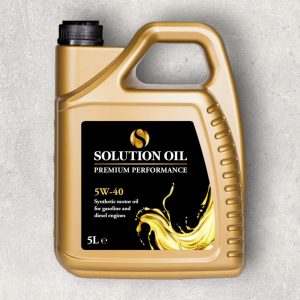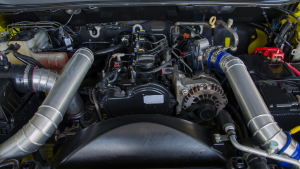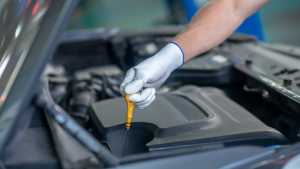The blogs of Solution Oil are written specifically for professionals working with oil, lubricants and technical systems. Whether you are active in agriculture, logistics, industry or shipping: our blogs give you reliable information and directly applicable insights. Thanks to years of experience, we know exactly what is going on in the field - and we write about it.
Blogs about products
On this page you will read about motor oil such as 5W30 or 5W40, hydraulic oil, transmission oil and greases. But we go beyond product information alone. We also give advice on choosing the right viscosity, calculating consumption, planning maintenance and improving storage safety. Our blogs give you practical answers to questions you really have in practice.
Technically strong but widely applicable Blogs
Our articles are not only technically strong, but also widely applicable. We cover current topics such as sustainability, laws and regulations, downtime prevention and efficient inventory management. In addition, we share insights on packaging formats, for example, the difference between 5-liter bottles, 200-liter drums and IBC containers. In this way, our blogs offer concrete support in making the right choices.
What makes our content unique is the combination of technical depth and down-to-earth language. No sales talk, but honest information that gets you further. The blogs are compiled in collaboration with professionals in the field, making them realistic, current and applicable. Whether you are a technician, buyer or business manager - these blogs are made for you.
New blogs for you!
We regularly publish new articles that respond to developments in the market, the season or changes in legislation. This way, as a professional, you always stay well informed. Tip: save this page or sign up for our newsletter so you don't miss an update.
In addition, want more general information about safe storage of petroleum products or regulations? Then take a look at the guidelines from the Central government knowledge center InfoMil for additional background and compliance advice.
In addition to technical topics, our blogs also focus on product development and innovation within the oil market. Think about the emergence of bio-based lubricants, synthetic alternatives and how they respond to sustainability and environmental standards. By incorporating these topics into our news articles, we help you not only choose the right product, but also future-proof your business.
Our conclusion
Finally, our articles are ideal for knowledge sharing within your organization. You can use them as internal training material, as a basis for toolbox meetings or as reference material for new employees. Many of our customers even print out specific blogs to use on site during maintenance or technical inspections. That makes these blogs more than just reading material - they are a practical tool in the field.



















